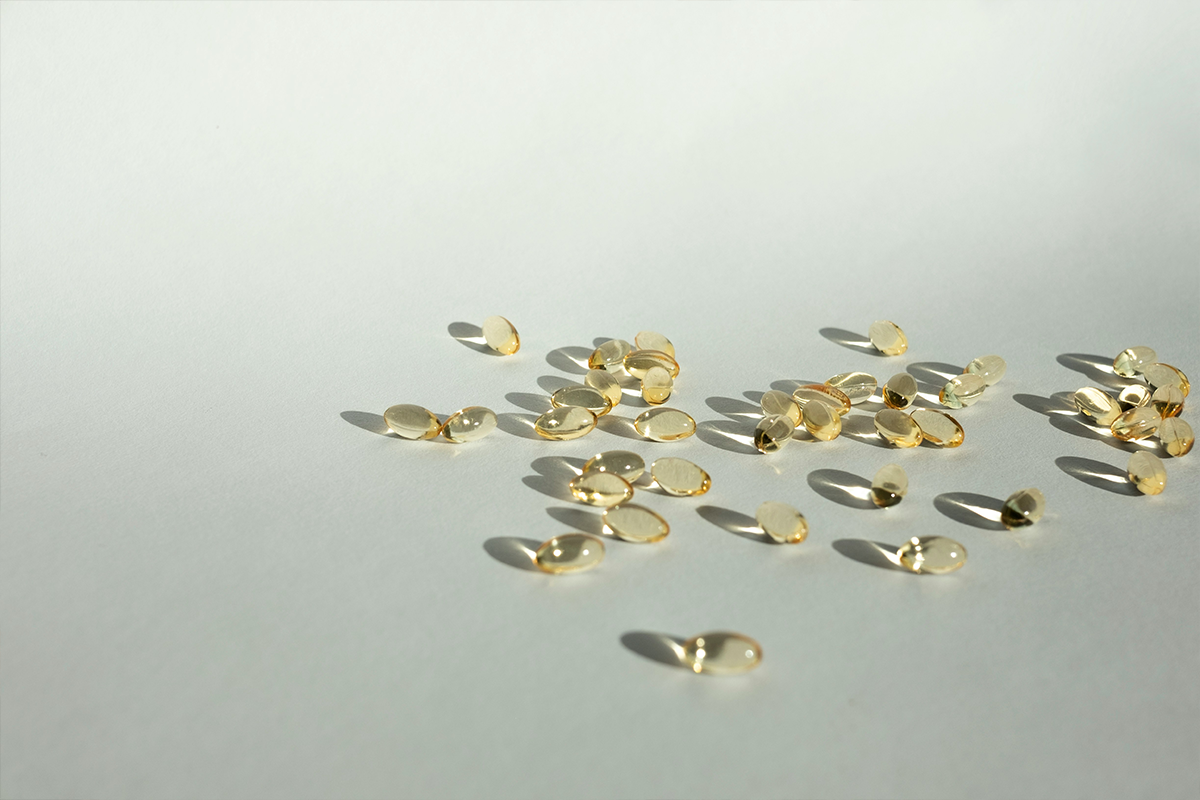Ever felt like your pelvic floor could use a little extra support? It can happen. Pelvic floor dysfunction is more common than you might think, and it can really put a damper on your day-to-day life. But here's some good news: certain vitamins might just be your new best friends in managing this pesky issue. Whether you're dealing with occasional discomfort or looking for ways to keep your pelvic muscles in tip-top shape, we've got the scoop on essential vitamins that could make a world of difference. Ready to give your pelvic floor the TLC it deserves? Let's dive in!
How do vitamins help with pelvic floor dysfunction?
Vitamins play a crucial role in maintaining overall health, including the well-being of your pelvic floor muscles. Here are some key benefits of incorporating essential vitamins into your routine for managing pelvic floor dysfunction:
- Muscle Strength: Vitamins like vitamin D, vitamin C, and vitamin B6 contribute to muscle strength and function. A strong pelvic floor is essential for supporting the pelvic organs and preventing issues like incontinence or pelvic organ prolapse. Benefits of Kegel exercises are crucial in achieving this.
- Nerve Function: Vitamins B1 (thiamine), B12, and E play a role in maintaining healthy nerve function. Proper nerve signaling is crucial for coordinating the contraction and relaxation of the pelvic floor muscles, enabling better control and preventing dysfunction.
- Collagen Production: Vitamins C and E support the production of collagen, a protein that provides structure and elasticity to tissues, including the pelvic floor muscles. Adequate collagen levels can help maintain the integrity and flexibility of the pelvic floor, reducing the risk of dysfunction.
- Anti-inflammatory Properties: Vitamins like vitamin C and vitamin E have antioxidant and anti-inflammatory properties, which can help reduce inflammation and promote healing in the pelvic region, potentially alleviating discomfort associated with pelvic floor dysfunction.
💡 It's important to remember that while vitamins can offer targeted benefits, a balanced and nutrient-rich diet, along with targeted exercises and professional guidance, is often recommended for optimal management and improvement of pelvic floor health.
Each person's needs and circumstances are unique, so consulting with a qualified healthcare professional is advisable to determine the most suitable approach.
Integrating vitamins into your daily routine
Incorporating vitamins into your daily regimen is key to reaping their benefits. Try these tips:
- Set a daily reminder on your phone
- Keep supplements visible in a frequently used area
- Pair vitamin intake with another daily habit, like brushing your teeth or having a meal.
When dealing with pelvic floor dysfunction, it's crucial to maintain consistency in taking vitamins and supplements. Adhering to a regular regimen can play a vital role in managing this condition effectively.
Additional nutritional considerations
Balanced diet for pelvic health
Maintaining a healthy diet is crucial for managing pelvic floor dysfunction. A diet rich in fiber from fruits, vegetables, whole grains, and legumes can help prevent constipation, which may exacerbate pelvic floor issues. Aim for 25-30 grams of fiber (2) daily and drink 6-8 glasses of water to keep things moving smoothly.
Dietary modifications
For those with specific pelvic floor conditions, certain dietary changes may help manage symptoms. For example, people with interstitial cystitis or overactive bladder (3) might benefit from limiting caffeine, alcohol, and carbonated beverages. These are examples of foods to avoid with pelvic floor dysfunction. It's essential to work with a healthcare provider or registered dietitian to develop a personalized nutrition plan that addresses your unique needs and supports overall pelvic floor function.
Lifestyle practices to support pelvic floor health
Supporting your pelvic floor health goes beyond just taking vitamins for pelvic floor dysfunction. Incorporating certain lifestyle practices can significantly improve your overall pelvic wellness. Let's explore some effective strategies to keep your pelvic floor strong and healthy.
Exercise and movement
Regular physical activity is crucial for maintaining a healthy pelvic floor. Low-impact exercises like Pilates can strengthen the pelvic muscles without putting excessive pressure on them. Remember to engage your pelvic floor muscles during any lifting activities to prevent strain.
Biofeedback device
Biofeedback devices are an effective tool for strengthening and retraining the pelvic floor muscles. These devices provide real-time feedback on the contraction and relaxation of the pelvic floor muscles, helping individuals become more aware of their muscle function and improve control.
Incorporating biofeedback devices like the Perifit Care or Care+ into your pelvic floor exercise routine can enhance the effectiveness of your training and provide valuable guidance on your progress. Using biofeedback therapy for pelvic floor health, and by receiving immediate feedback on the Kegel app game, you can learn to isolate and engage the correct muscles, ultimately leading to improved pelvic floor strength and control.
Mindful eating and drinking
What you consume can directly impact your pelvic floor health. Limit bladder irritants such as caffeine, alcohol, and spicy foods. Stay hydrated by drinking 6-8 glasses of water daily, but spread your fluid intake throughout the day to avoid overwhelming your bladder.
Bladder training
Gradually increasing the time between bathroom visits can help improve bladder control. This technique, known as bladder training, allows your bladder to fill more completely and gives you better control over the urge to urinate.
Weight management
Maintaining a healthy weight is crucial for pelvic floor health. Excess weight can weaken pelvic floor muscles, so losing those extra pounds can significantly improve symptoms. Combine a balanced diet with regular exercise for optimal results.
It's important to remember that adopting a healthier lifestyle, complemented by appropriate vitamin supplementation for pelvic floor issues, can significantly enhance your pelvic health. However, before making substantial changes to your routine, it is advisable to consult with a qualified healthcare professional for personalized guidance.
So there you have it - the lowdown on vitamins that can give your pelvic floor a boost. Remember, while these nutrients play a role in overall health, they're not a magic fix. Combining them with pelvic floor exercises, including kegel exercises, and a balanced lifestyle is key. Everyone's body is unique, so what works for one person might not work for another. Don't be afraid to chat with your healthcare provider about incorporating these vitamins into your routine. They can help tailor a plan that's just right for you. Keep exploring, stay curious, and most importantly, listen to your body. You've got this! Here's to a stronger, healthier you from the inside out.
Sources:
- https://pmc.ncbi.nlm.nih.gov/articles/PMC5625572/
- https://www.continence.org.au/information-incontinence-english/healthy-diet-and-bowels
- https://pmc.ncbi.nlm.nih.gov/articles/PMC10573006/





